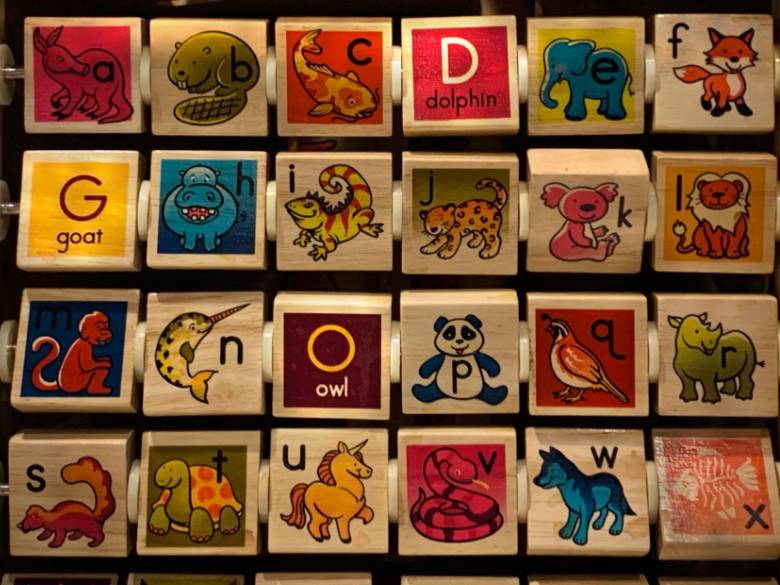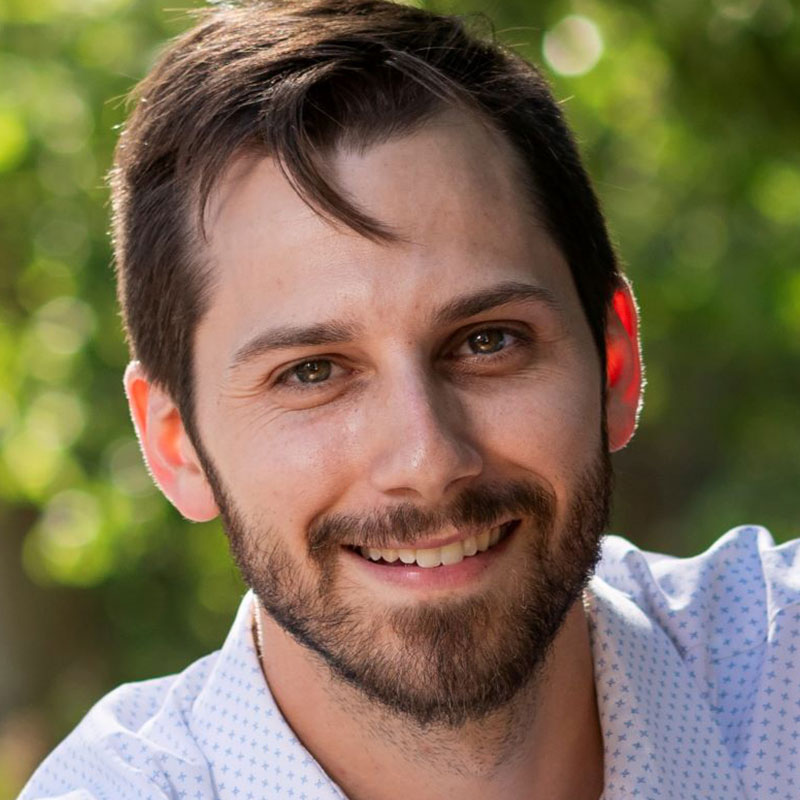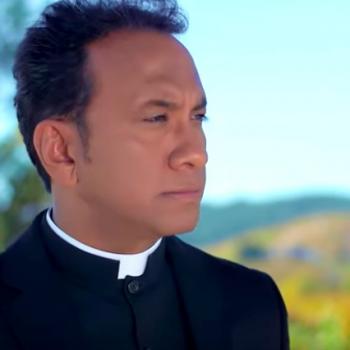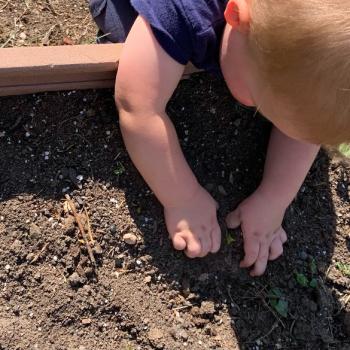
Faith is like a language. It helps us to understand and express our love, gratitude, apologies, or requests to God.
Like any other language, it is important to learn and to teach to our children.
Why is it Important to Teach Language to Children?
I have heard it said: “When I have kids, I will let them choose what religion they want to be.”
There is something that concerns me about this concept though. It will deprive the child of learning during the most formative years!
Using the analogy of language, would you do the same thing? “When I have kids, I will let them choose which language they want to speak.” Sounds crazy and problematic!
Our faith is a choice in the end. We do have to decide to believe, follow the Gospel, and love God and our neighbor every day. At the same time, we had to learn to make this choice.
You cannot choose what you don’t know.
How We Learn a Language
I’m no expert, but at a high level, this seems to be a simplified order in which we learn a language:
- Immerse or experience (listen)
- Imitate the sounds (attempt to respond)
- Wonder about their meaning (think)
- Learn the meaning (try to understand)
- Express an idea (speak)
- Communicate (get feedback)
- Repeat
As a baby, we are surrounded by language. The first time around these steps we are only grasping the simplest of sounds and learning the commonly used sounds, like “yes/no”, “this/that”, etc.
As we grow up, our listening becomes more complicated and deep. We learn words for objects, sentence structure, full ideas.
Language comes in stages. My son understands a lot at 1, but he can’t express himself very well yet. My daughter can express herself very well at 3, but doesn’t always understand what we are trying to express to her.
Even later, we have nuanced thought and conversations around ideas, continually learning. I am still forming the way I think about the world around us. This is why we have philosophy.
It would be unfair to shelter your kids from learning language in childhood in the name of “giving them a choice”. This would set them back in their ability to choose any language at all. Therefore, it would affect their ability to have relationships with family or their community!
I’d rather have my kid know the language and choose not to speak it someday than to not be able to speak it even if they want to because they were never taught.
How We Learn the Language of Faith
Learning our faith is similar.
- Immerse or experience (observe)
- Imitate the actions, prayers, or habits (attempt to respond)
- Wonder about their meaning (think)
- Learn the meaning (try to understand)
- Express an idea (express yourself to God or others)
- Communicate (participate in prayer, worship, study, etc.)
- Repeat
Similar to learning to speak, each time we go around this cycle, we uncover some new way to think, reason, and express ourselves. In order to know something, it takes repeated exposure to the idea of it, whether language or anything else.
As a baby, we are surrounded by beliefs, whether Christian, secular or otherwise. We absorb these beliefs the same way we do with words.
My son can fold his hands and attempt to make the sign of the cross even though he has no clue what those actions signify yet.
As the kids grow up, they start asking questions like “Why do we always make the sign of the cross? Or fold our hands?”.
Faith also comes in stages. There is always more to learn which is why seminarians not only study philosophy but also theology.
It would be unfair to shelter your kids from learning religion in childhood in the name of “giving them a choice”. Not having a belief limits the ability to learn to see with eyes of faith, to ask questions, or really experience a relationship with God.
Becoming Fluent
The steps repeat in a cycle because no one will ever have perfect knowledge in one lifetime of any language or idea. There is always opportunity for growth and seeing a different perspective.
No language can be 100% expressive of your exact idea or thought. I like to think that we will be able to communicate perfectly in Heaven. But while on earth, we can only express so well.
Mastering the Language
So what would it mean to master a language?
We may not be able to know everything, but there is a certain threshold where a speaker becomes fluent.
By understanding how it is formed, learning to freely express and elaborate on ideas, language can be mastered.
Fluency makes the language second nature to the idea itself. You have the words right there and you can implement them without causing too much frustration from being misunderstood.
To be fluent in faith is to have the ability to pray with ease. You know where you stand in relation to God and you can express yourself to Him with either memorized written prayers, personal private conversation, or just awareness of His reality and presence around you.
The Process
In the process of becoming fluent you’ve asked questions, learned the rules, and wrestled with when the rules appear to be broken.
In English, we oddly know to put a K at the beginning of “know”. The silent letters, the homonyms, and the grammar rules can be frustrating, but eventually you stop thinking about them. And with practice, they can even start to make sense to you, despite looking crazy to a non-native speaker.
Religious practice also has its quirks. Many Catholics have had to wrestle with questions about belief and morals. They learn the motions at mass before understanding why we stand, sit, or bow when we do.
We learn the commandments and are asked to follow them so that later, we can mature enough to ask “why?”. Hopefully, we have good teachers then that can show us that there is a logic and even a beauty to these “Thou shall not”s that are rooted in the Father’s “because I love you”.
It is a long process. There will be always be those more articulate than you or I. This is why we go to school and look to our teachers as examples to learn from. The Saints can be our professors.
Freedom of Choice Comes with Requirement of Learning First
So those are my rough steps to learning language and faith; however, there is an 8th step that I didn’t list: Choice.
The freedom to choose is preceded by our own ability. I cannot choose to speak English if I don’t know English.
Even further, I need to have enough fluency in English to know when speech ceases to be English and becomes another language.
Knowing the Boundaries
When my daughter was first learning words, I taught her that an apple is “une pomme”. She had already learned “apple”. To her this was another fun way to say it, similar to the way we can say “couch” or “sofa” and mean the same thing.
Later, as she got a better grip of the English language, she realized that “pomme” is not actually English but the French word for apple. Now she can choose, at least for this one object, which language to use.
Had she not mastered that idea before going to school, she would probably have confused some classmates or teachers when talking about fruits.
Similarly, in our faith, we have to master the ideas enough to know what beliefs are outside of the faith or even against it.
This knowledge is what allows us to freely choose.
Knowing where out of bounds is, allows you stay on the field. Otherwise, you’re not really playing the game.
Sadly, there are Catholics who are apart of the family, but they might have misunderstandings on what teachings come from the Church and what is not. Not realizing where the faith begins or ends, this doesn’t allow a freedom of choice. Because freedom is not being able to choose which parts of the faith I want, but to freely be able to choose The Good.
In this case, we can repeat the process by wondering, asking questions, and being open to learning the language more deeply.
Choosing and Owning
It is a desire to communicate that drives us to learn language. Similarly, a desire to worship drives us to learn a religion.
I think everyone has that desire, but it needs to be owned. I think this ownership comes when you are able to choose for yourself.
I am so thankful that my parents brought me to mass on Sundays and encouraged me to go to CCD and youth groups as a kid. Even if those programs were not the perfect, they taught me the foundations of the language of Faith.
I distinctly remember in High School being the only Catholic in my cabin at a Christian (non denominational) summer camp talking to the guys in my cabin. I wasn’t very articulate and was still learning the language of faith.
When they asked, I was honest with them saying “I don’t know exactly why I’m Catholic, it is honestly mostly because I was raised that way, but I think it’s good and it would take a lot for me to want to switch to any other denomination.” I knew that I believed in Christ, but I did not fully have a grasp of the depths of Catholicism. I didn’t know where Catholicism ended and other denominations began.
It wasn’t until I entered a Bible study in college that I had decided that I really wanted to learn about this, study this, and understand why I do this so that I can choose it. I started to own this language for myself. Here I gained the freedom to choose. Happily I can say that I choose it.
Helping Others Learn
So my kids are young. I am sure that I won’t be a perfect teacher. However, I will do my best to teach them this language and master it, so that they have the freedom to choose it.
This is what the Catechism of the Catholic Church says we ought to do as parents:
“Parents have the first responsibility for the education of their children. They bear witness to this responsibility first by creating a home where tenderness, forgiveness, respect, fidelity, and disinterested service are the rule. The home is well suited for education in the virtues. This requires an apprenticeship in self-denial, sound judgment, and self-mastery – the preconditions of all true freedom. Parents should teach their children to subordinate the “material and instinctual dimensions to interior and spiritual ones.” Parents have a grave responsibility to give good example to their children. By knowing how to acknowledge their own failings to their children, parents will be better able to guide and correct them:
He who loves his son will not spare the rod. . . . He who disciplines his son will profit by him.
Fathers, do not provoke your children to anger, but bring them up in the discipline and instruction of the Lord.” – CCC 2223
When confronted with ideas from other religions that may be contrary to our faith, I hope that they will see clearly what is and is not true. I want them to be equipped with a mastery in the language of Catholicism that provides principals and a worldview to compare to. Then I pray that they choose the faith and will someday own it more fully for themselves.
Read more Formed by a Flame or Subscribe to the Newsletter!


















